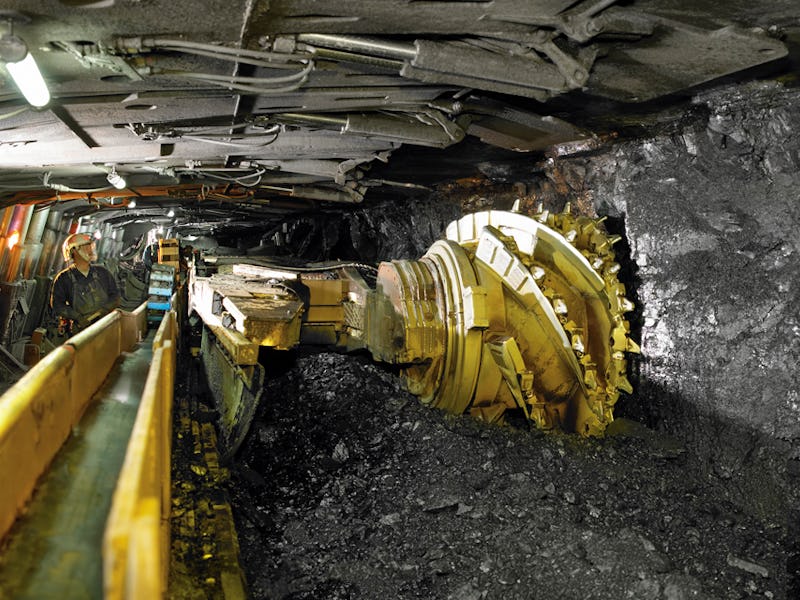If Trump Were Serious About Saving Coal, He'd Ban Fracking
This idea is so awful, it just might work.

U.S. President-elect Donald Trump won the election on promises he won’t be able to keep, and the biggest one might be this: that he can bring back the once-raging coal industry.
“Get ready because you’re going to be working your asses off,” he assured miners in West Virginia.
It’s not true. It’s not true that environmental regulations under President Barack Obama strangled the coal industry, and it’s equally not true that blocking those regulations will bring it back.
What actually killed the coal industry, in large part, is a glut of cheap, homegrown natural gas produced through the technique known as hydraulic fracturing, or fracking. The only hope for coal is a rise in the price of gas.
This might be accomplished through the promotion of overseas exports in the form of liquefied natural gas, since prices abroad are much higher. But gas price discrepancies reflect real challenges in creating a global market for natural gas, which travels far easier by pipeline than by ship. Even if Trump could snap his fingers and create a handful of new LNG export facilities, there’s a good chance that renewables, not coal, would fill the resulting gap in demand at home, since investment there is also hampered by the glut of American natural gas.
A natural gas drilling rig in Wyoming.
Why not just ban hydraulic fracturing altogether instead? This would shock the natural gas industry and force a dramatic price increase. American energy markets would have to swing back in the direction of coal burning, and Trump would make a few surprise friends among the anti-fracking crowd as a bonus.
Bad news, though: This just won’t happen. Although the coal industry has a special place in Trump’s heart (and election strategy), he is an equal opportunity supporter of the fossil fuel industry. He believes — against reason — that taking away environmental regulations will allow for the expansion of oil, gas, and coal production and make America rich again. For all his claims of being business savvy, he appears to forget that businesses need customers, and prices stabilize where supply meets demand.
Republicans may think they’ve elected a small-government, free-market capitalist, but it may turn out that they’ve got an advocate for corporate welfare instead. Trump showed that to be true with the recent Carrier deal, saving about 800 jobs in exchange for tax breaks worth about as much as paying the salary of those employees directly. Even at the local level, officials worry that these sort of one-off deals will increase competition between states for the few manufacturing jobs left, forcing them to dig deeper into public coffers to pay out big corporate pay cuts.
But on the other hand, the deal certainly allows Trump to play the hero.
Coal miners in West Virginia aren’t stupid; they know Trump can’t magically make their industry profitable. What the president-elect offers is not salvation, but a promise to slow the bleeding just a little. He’s showed a willingness to do something to hinder forces of change, even against good policy and better judgment. A few people will get to keep their jobs, and the rest will — perhaps? — be comforted that someone in the White House thinks they are worth fighting for.